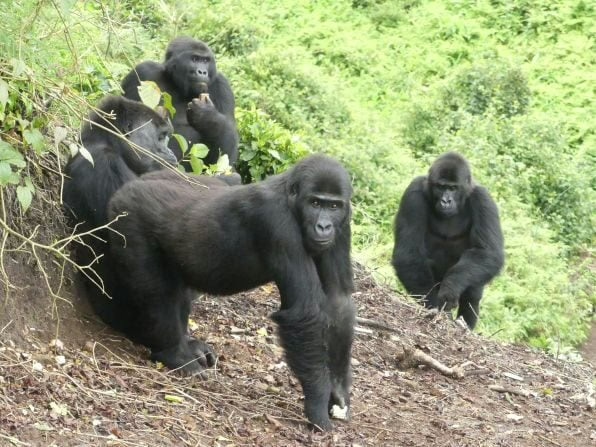Wild Africa, a non-governmental organization dedicated to wildlife preservation, has urgently appealed for the safeguarding of Nigeria’s remaining 100 Cross River Gorillas from the threats posed by illegal bushmeat hunting.
Marking World Gorilla Day, Festus Iyorah, Wild Africa’s Nigerian spokesperson, emphasized the critical need for immediate action to protect these dwindling gorilla populations, which are on the brink of extinction within the country.
The organization stresses the importance of unified efforts to conserve both the gorillas and their natural habitats, while simultaneously curbing the commercial bushmeat trade that endangers their survival.
According to reports from LEADERSHIP Weekend, the Cross River gorillas inhabit the rugged mountainous borderlands between Nigeria and Cameroon. Classified by the IUCN Red List as the most imperiled ape species, they represent one of the planet’s rarest primates.
Globally, fewer than 300 individuals of this species are estimated to remain in the wild, underscoring their status as some of the most elusive and critically endangered great apes.
Iyorah highlighted that in Nigeria, these gorillas confront multiple threats including poaching, habitat destruction driven by expanding agriculture, and increasing human populations. Particularly damaging is the illegal bushmeat trade, where wire snares intended for other animals frequently injure or kill gorillas, severely impacting their chances of survival.
“Immediate measures are essential to protect every single Cross River gorilla left in Nigeria. These animals are a vital part of our national identity. It is imperative that we unite to ensure their continued existence for the benefit of generations to come,” he stated.
While World Gorilla Day celebrates the global importance of these magnificent creatures, it also serves as a stark reminder that one of the world’s rarest great apes is rapidly approaching extinction. Their protection transcends conservation-it is a duty owed by the nation.
Safeguarding the Cross River gorillas goes beyond preventing their disappearance; it is about conserving Nigeria’s rich ecological legacy and fostering sustainable economic growth.
Gorillas are essential to the health of forest ecosystems. Through their feeding habits and nesting activities, they facilitate seed dispersal and promote plant diversity, which aids forest regeneration. As a keystone species, their protection inherently supports the survival of numerous other endangered animals sharing their environment.
Moreover, the presence of gorillas offers promising prospects for sustainable development. Ecotourism centered around gorilla watching can attract international visitors, generate foreign exchange, and provide economic benefits to local communities.
The onus is on the Nigerian government to enhance the enforcement of wildlife protection laws, modernize outdated regulations to meet current conservation challenges, allocate resources for habitat preservation, and intensify public awareness campaigns aimed at reducing the demand for commercial bushmeat.

















